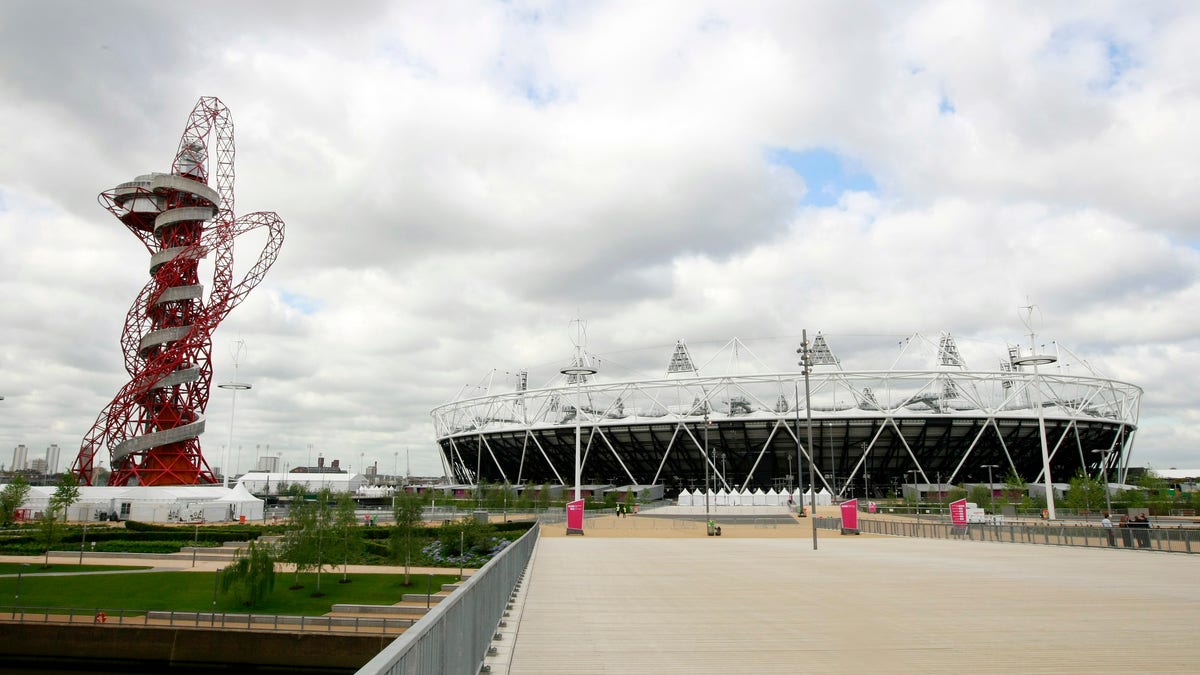
This east London stadium and the city itself will be filled with spectators and athletes when the Games begin on July 27. (AP2012)
Britain has almost $775 million left unspent in its Olympic budget, Sports Minister Hugh Robertson told Reuters on Wednesday. This comes as a surprise, during a time when the country has been undergoing deep spending cuts by the government.
Public funding for the London Olympics has increased to $14.4 billion, more than double the figure they originally anticipated in 2005, when London was awarded the honor of hosting the event.
“We are becoming increasingly certain that we can deliver these games for under [$14 billion] and if we could do that, that would be a remarkable achievement,” Robertson shared with reporters.
After the success of last week’s Diamond Jubilee celebrations, the government has made roughly an additional $30 billion available for crowd management at venues and for revelers in central London during the Games. Robertson added that London’s transportation system would be able to deal with the huge crowds during the Games as well.
“Nobody knows how many people are simply going to turn up. London is going to be the place this summer- if the rain holds off- to come and have a party,” Robertson said.
Roberston was also “surprised on the upside” by the number of visitors who came to central London during last week’s celebrations to commemorate Queen Elizabeth’s 60 years on the throne. He also noted the enthusiasm for the Olympic torch on its relay though the British islands.
TRANSPORTATION STRAIN
The sports minister said that London’s infamous public transportation system would not crumble under the stress of the many visitors they are anticipating. To help ease the pressure the city will be under, Londoners are encouraged to work from home, or change their working hours altogether.
Robertson stated “We are confident that the transport plan absolutely will hold,” adding that there will inevitably be lines building up on the underground and other rail systems.
He also ruled out using any of the city’s remaining contingency funds in order to pay London bus drivers, who are threatening to strike because of a disagreement over bonuses for work during the Games.
“Most people realize this is a great national moment and they don’t want to mess it up,” Robertson said, echoing that the hope and expectation in the weeks to come is that all the issues will be sorted out before the Games begin.
BUSINESS POTENTIAL
Even though Britain, in the midst of recession, views the games as business potential, among other things, credit agency Moody’s disagree. In a statement made last month, they doubt that hosting the world’s biggest sporting event would give the economy a long-term boost.
However, Robertson believes the Games, and future sporting events, are a ‘tangible economic benefit.’
“If you look at the number of major sports events that are now coming to this country in the period after 2012, British sport has never had a period like this.”
He added, “There is at least one major competition and a series of other world championships to come here every year, running through pretty much until 2020.”
Among those will be the Commonwealth Games, hosted by Glasgow in 2014, the rugby World Cup in 2015, hosted by London, and the world athletics championships, held at the Olympic Stadium in east London in 2017.
The future of British sporting events will be seen when the Olympics run from July 27 to August 12.








































